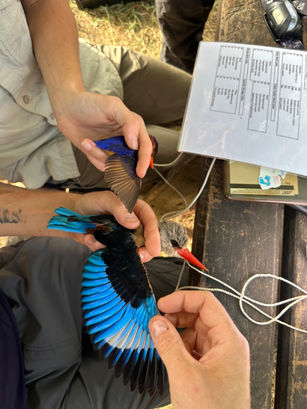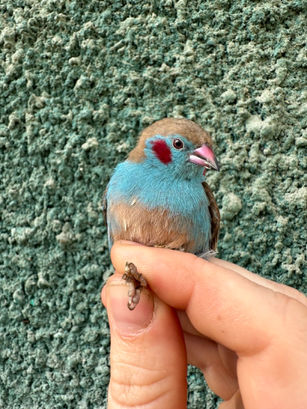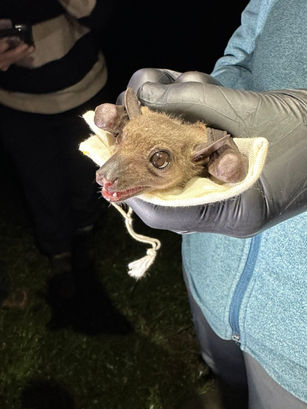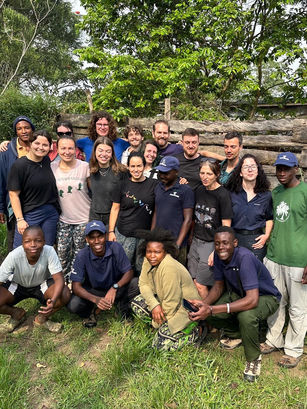

UGANDA RESEARCH EXPEDITION
2025
Join Us for Our 2025 Wildlife Research Expedition in Uganda!
Embark on a life-changing journey as we return to Uganda for our second research expedition
January 20th to February 28th, 2025 (dates subject to change).
This expedition offers a unique opportunity to work alongside conservation experts and our Ugandan partners from Makarere University and other regional conservation organisations. We will visit four different locations in Northeastern Uganda; a relatively understudied region with some of the least developed ecotourism infrastructure but immense biodiversity potential. As a volunteer, you'll be an essential part of vital research that contributes to the preservation of Uganda's wildlife and the sustainable development of local communities.


Research Focus
Birds
-
Primary focus on bird ringing: volunteers will assist with bird ringing as we gather data on molting biology and breeding ecology, which are poorly studied across much of East Africa. We aim to deepen our understanding of bird breeding patterns and molting cycles in this understudied region.
-
Visual and acoustic surveys: volunteers will also participate in surveys that record bird calls and track species visually, providing essential data on bird diversity and behaviour.
Bats
-
Mist-netting: volunteers will assist with mist-netting to capture and identify bats, helping to map species distribution in this largely unexplored area.
-
Acoustic monitoring and wing punches: acoustic monitoring will involve collecting release calls and other bat calls, helping to build a bat call reference library for the region. We will also be collecting wing samples for genetic analysis, which will further confirm species presence.
Secondary focus areas: entomology, large mammals, and herpetofauna
For those interested in broader biodiversity studies, the expedition will include inventories of invertebrates with a focus on beetles, moths, and butterflies. Opportunistic surveys of large mammals and herpetofauna will help identify potential rare or cryptic species in the region. There’s also the potential for some mammal monitoring via opportunistic tracking and camera traps.
Research Aims
Our primary goal is to establish biodiversity baselines for a variety of species in the region. These baselines will play a crucial role in the development of wildlife corridors and ecotourism projects that will benefit both the local biodiversity and the surrounding communities. Northeastern Uganda is one of the least developed areas in the country, and there is a significant need for conservation programs that not only protect wildlife but also provide value through ecotourism and sustainable use of natural resources.
Our main aims are to:
-
Establish biodiversity baselines: Collect data on species diversity, molting biology, breeding ecology, and genetic information, particularly for birds and bats.
-
Support conservation and ecotourism: Use these baselines to help inform conservation strategies and develop ecotourism projects that will support local communities.
-
Collect scientific data for further research: Contribute to broader knowledge by establishing reference libraries of bird and bat calls, and species distribution records for this under-studied region.
This project directly supports local conservation partners and is being conducted in collaboration with ongoing work from Makarere University and our regional conservation collaborators.
Why join us?
-
Make a meaningful impact: Volunteers will contribute directly to the establishment of biodiversity baselines that are critical for conservation planning. The data collected will aid the creation of wildlife corridors and support the development of ecotourism projects in this under-researched area of Uganda.
-
Learn from experts and build your skills: Our team of researchers will guide you through various wildlife research techniques. This expedition provides an excellent platform for gaining practical research skills, including species identification, data collection, and field monitoring techniques. Whether you're a budding ecologist or an experienced conservationist, these skills will be invaluable in advancing your career in wildlife conservation.
-
Cultural exchange and community impact: You’ll have the unique experience of working alongside Ugandan students and researchers, contributing to both local knowledge and capacity-building in conservation efforts.
What's included?
Volunteers will need to cover the cost of international travel to and from Entebbe, Uganda.
Once you arrive, the program fee will cover:
-
Transport to and from the research sites
-
Accommodation at our research camps
-
Meals during the expedition
-
Access to research equipment, including bird ringing and mist netting gear
-
The cost of research permits
-
Contributions toward the participation of Ugandan students, helping to build local capacity in wildlife conservation.
Pricing to be confirmed by end of October 2024.
Apply
This is a unique chance to be part of a collaborative effort to protect one of Africa’s most unexplored regions whilst learning valuable skills that will enhance your career in conservation.
If you are interested in joining us please email us at info@faunaforever.org with a brief summary of your background and motivation to participate. You can also contact our Head Field Research Coordinator Chris Ketola via WhatsApp +51 952 353 155 for more information.
We look forward to welcoming you to Uganda and working together to protect its incredible biodiversity!



















